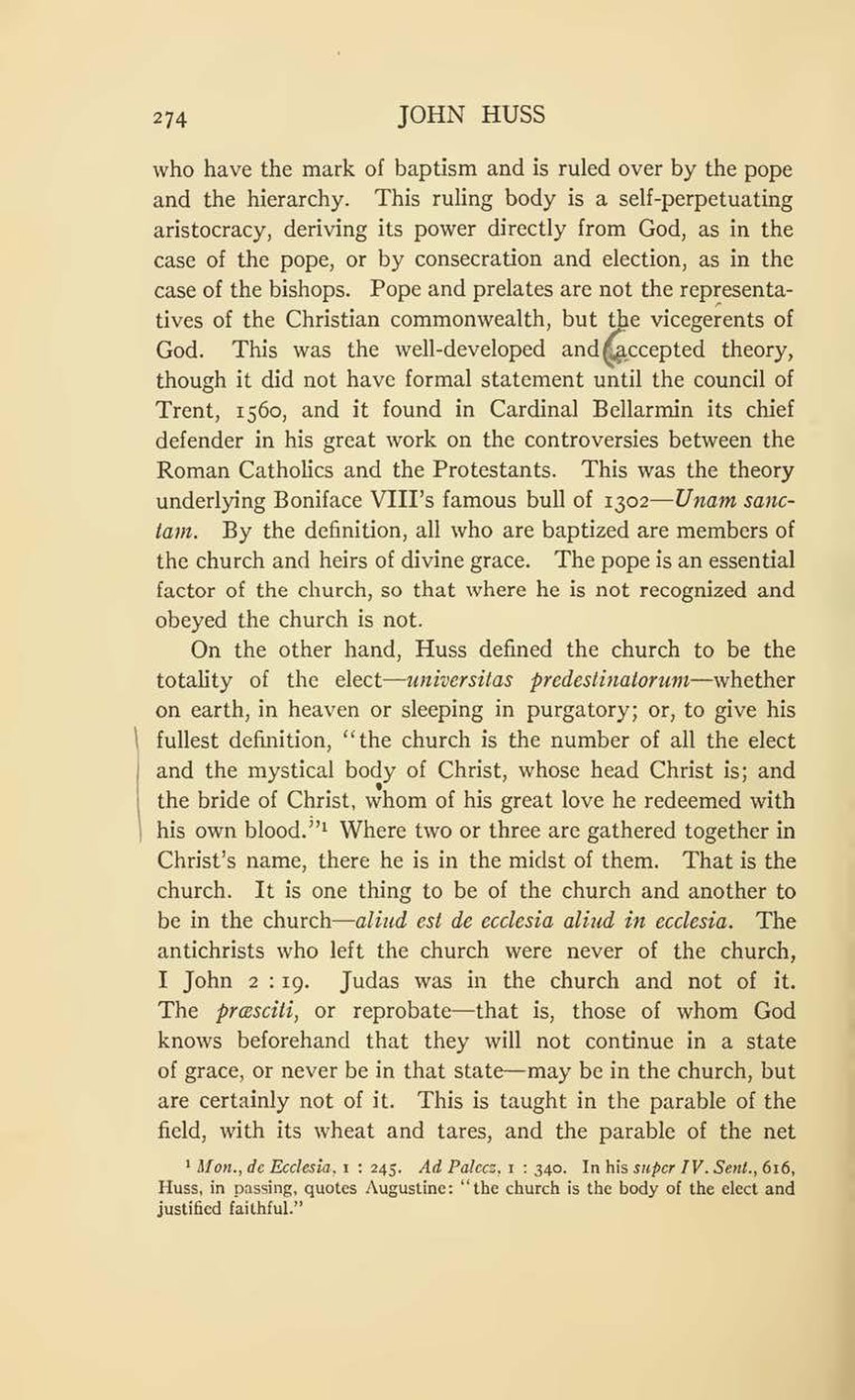who have the mark of baptism and is ruled over by the pope and the hierarchy. This ruling body is a self-perpetuating aristocracy, deriving its power directly from God, as in the case of the pope, or by consecration and election, as in the case of the bishops. Pope and prelates are not the representatives of the Christian commonwealth, but the vicegerents of God. This was the well-developed and accepted theory, though it did not have formal statement until the council of Trent, 1560, and it found in Cardinal Bellarmin its chief defender in his great work on the controversies between the Roman Catholics and the Protestants. This was the theory underlying Boniface VIII’s famous bull of 1302—Unam sanctam. By the definition, all who are baptized are members of the church and heirs of divine grace. The pope is an essential factor of the church, so that where he is not recognized and obeyed the church is not.
On the other hand, Huss defined the church to be the totality of the elect—universitas predestinatorum—whether on earth, in heaven or sleeping in purgatory; or, to give his fullest definition, the church is the number of all the elect and the mystical body of Christ, whose head Christ is; and the bride of Christ, whom of his great love he redeemed with his own blood.”[1] Where two or three are gathered together in Christ’s name, there he is in the midst of them. That is the church. It is one thing to be of the church and another to be in the church—aliud est de ecclesia aliud in ecclesia. The antichrists who left the church were never of the church, I John 2:19. Judas was in the church and not of it. The præsciti, or reprobate—that is, those of whom God knows beforehand that they will not continue in a state of grace, or never be in that state-may be in the church, but are certainly not of it. This is taught in the parable of the field, with its wheat and tares, and the parable of the net
- ↑ Mon., de Ecclesia, 1: 245. Ad Palecz, 1: 340. In his super IV. Sent., 616, Huss, in passing, quotes Augustine: “the church is the body of the elect and justified faithful.”
